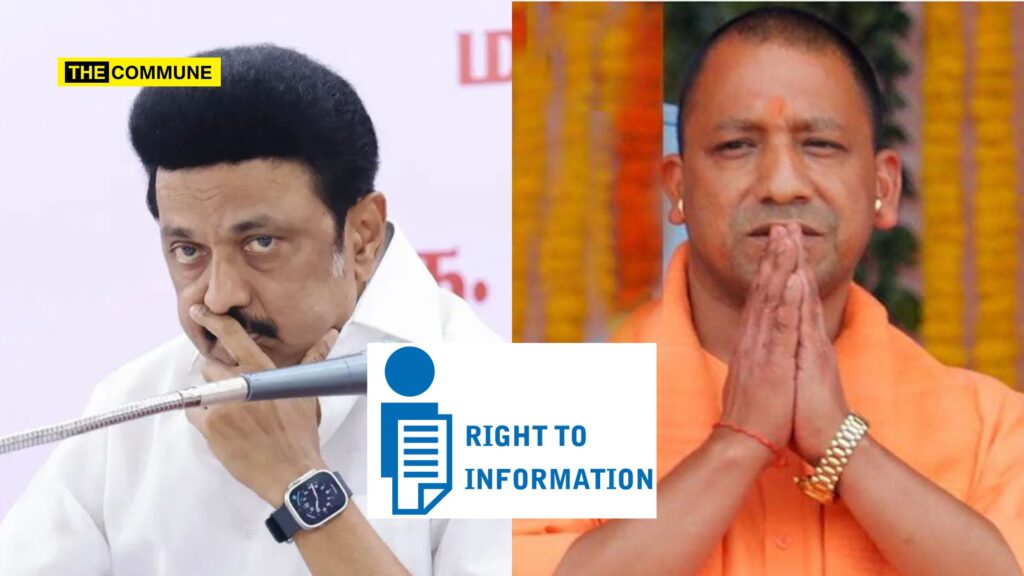Tamil Nadu has been ranked the worst-performing state in terms of RTI responsiveness, with only 14% of the requested information being furnished. This figure is significantly lower than the national average of 57%. Surprisingly, Uttar Pradesh, a state often criticized by DMK and its leaders for its lack of law and order and transparency, performed better than Tamil Nadu, with an RTI responsiveness rate of 82%.
The report, released by Satark Nagrik Sangathan (SNS), a non-profit organization dedicated to promoting transparency and accountability in government, assessed the performance of 29 information commissions across India. The evaluation was based on four key parameters: timely disposal of cases, percentage of cases disposed of in favor of applicants, percentage of cases disposed of without any hearing, and percentage of cases where compensation was awarded to the applicants.
The State Information Commission of Tamil Nadu only managed to furnish 14% of the information sought during the 2021-22 period, highlighting its poor performance. The SNS report also revealed that the DMK government failed to provide information on appeals and complaints registered and disposed of by the Information Commissions. The Information Commissioner justified this by claiming that the information could only be provided “after getting the approval of the state Legislative Assembly,” although no such provision exists in the RTI Act. Furthermore, the Tamil Nadu State Information Commission denied information regarding the backlog of appeals and complaints, as well as details of penalties imposed by the Information Commissioners.
According to the report, the Tamil Nadu State Information Commission was the worst-performing body as it denied most of the requested information, including data on the number of appeals and complaints addressed by the Information Commission, penalty details, and compensation awarded. The commission stated that such information could only be provided “after getting the approval of the State Legislative Assembly,” despite the absence of such provisions in the RTI Act.
In addition, the report highlighted the poor gender parity within the composition of the Tamil Nadu State Information Commission, with 83% of its members being men. This gender disparity raises concerns about diversity and representation within the commission.
There could be several reasons behind Tamil Nadu’s dismal performance in terms of RTI responsiveness. One possible factor is the lack of seriousness on the part of the state government in implementing the RTI Act. Another factor could be the inadequate training provided to public information officers (PIOs) in handling RTI requests effectively.
The low level of RTI responsiveness in Tamil Nadu is a significant problem as it hampers citizens’ right to access information about the government and its activities. It also makes it challenging for citizens to hold the government accountable for its actions, undermining transparency and democratic principles.
The SNS report suggests that the Tamil Nadu government has been reluctant to fully implement the RTI Act, with slow appointments of PIOs and a lack of comprehensive training programs. Additionally, there have been reports of the government’s hostility towards RTI activists, further hindering the process of seeking transparency and accountability.
RTI activist organizations like Arappor Iyakkam are demanding that the DMK government takes immediate steps to improve RTI responsiveness in Tamil Nadu. This may include appointing more PIOs, providing enhanced training for PIOs, and creating a supportive environment for RTI activists.
It is worth noting that political commentator Savukku Shankar has accused the government of deliberately keeping the post of Chief of Information Commission vacant to accommodate a soon-to-be retiring IAS officer Irananbu. Such delays in appointments hinder transparency and raise concerns about governance.
The poor performance of Tamil Nadu in terms of RTI responsiveness serves as a wake-up call for the DMK government. Urgent measures need to be taken to improve transparency and accountability.
Notably, despite being labeled as a ‘Jungle Raj’ by DMK leaders and pro-Dravidian news outlets, the state of Uttar Pradesh has outperformed the Tamil Nadu government. The RTI responsiveness of the UP government stands at 82%, significantly higher than the disappointing rate of the Tamil Nadu government.
Click here to subscribe to The Commune on Telegram and get the best stories of the day delivered to you personally.

